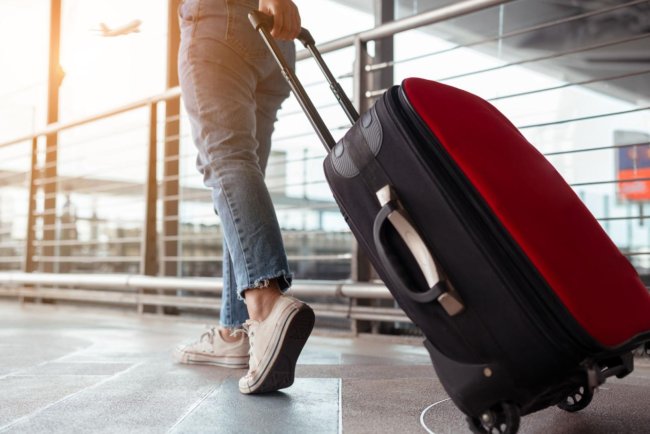When it comes to traveling, securing travel insurance is a crucial step to protect yourself from unexpected events. However, making a claim can sometimes be a complicated process. Many travelers encounter issues that delay or even invalidate their claims due to common mistakes. Understanding these pitfalls and how to avoid them can significantly improve your chances of a successful claim. In this blog post, we’ll explore the 10 most common mistakes people make when submitting travel insurance claims and provide tips on how to avoid them.
1. Failing to Read the Policy Details
Understanding Your Coverage
One of the most common mistakes travelers make is not thoroughly reading their insurance policy before purchasing. Insurance policies can be complex, and failing to understand the specifics of what is covered can lead to problems when filing a claim. For instance, some policies may not cover certain activities or may have exclusions that are not immediately apparent.
Tip: Before buying travel insurance, carefully review the policy details, including coverage limits, exclusions, and requirements for making a claim. Make sure you understand what is covered and what is not to avoid surprises later.
2. Not Keeping Proper Documentation
Importance of Record-Keeping
Proper documentation is critical for a successful insurance claim. Travelers often fail to keep the necessary documents such as receipts, medical reports, and police reports, which are essential for substantiating their claim. Without proper documentation, it becomes challenging to prove the validity of the claim.
Tip: Keep all relevant documents related to your travel, including receipts for expenses, medical records, and police reports if applicable. Store these documents in a safe place and make copies as a backup.
3. Ignoring Policy Time Limits
Understanding Time Constraints
Most travel insurance policies have specific time limits for filing a claim. Ignoring these time constraints can result in a denied claim. For example, many policies require you to notify the insurer within a certain number of hours or days after an incident occurs.
Tip: Be aware of the time limits specified in your policy for reporting an incident and filing a claim. Act promptly to ensure that your claim is processed within the required timeframe.
4. Misrepresenting Information
Avoiding False Claims
Providing false or misleading information when making a claim can lead to serious consequences, including claim denial and potential legal issues. This includes exaggerating the severity of the loss or failing to disclose pre-existing conditions.
Tip: Be honest and accurate when providing information for your claim. Ensure that all details are correct and that you disclose any relevant information that might affect the claim.
5. Not Following Policy Procedures
Adhering to Claim Procedures
Each insurance policy has specific procedures for filing a claim, including how to submit forms and whom to contact. Not following these procedures can result in delays or denial of your claim.
Tip: Follow the procedures outlined in your policy for submitting a claim. This may include filling out specific forms, providing required documentation, and contacting the insurance company within the specified time frame.
6. Overlooking Exclusions and Limitations
Knowing Your Exclusions
Insurance policies often have exclusions and limitations that can affect your claim. Common exclusions include pre-existing conditions, high-risk activities, and certain types of losses. Overlooking these can lead to frustration when a claim is denied.
Tip: Review the exclusions and limitations of your policy carefully. Understand what is not covered to avoid submitting a claim for something that is not included in your policy.
7. Not Seeking Timely Medical Attention
Importance of Prompt Medical Care
If you require medical treatment while traveling, it is important to seek timely medical care. Delayed treatment can complicate your claim and may result in reduced coverage or denial.
Tip: Seek medical attention as soon as possible if needed. Obtain a detailed report from the healthcare provider and keep records of all treatments and expenses.
8. Failing to Report the Incident Properly
Reporting Incidents Accurately
For claims related to theft, loss, or damage, it is crucial to report the incident to the appropriate authorities, such as the police, and obtain a report. Failure to do so can hinder your claim.
Tip: Report any incidents, such as theft or loss, to the relevant authorities immediately. Obtain a copy of the report and submit it with your insurance claim.
9. Not Reviewing the Claims Process
Understanding the Claims Process
Travelers often make the mistake of not fully understanding the claims process, which can lead to errors or delays. This includes not knowing whom to contact, what forms to fill out, or how to submit supporting documents.
Tip: Familiarize yourself with the claims process outlined in your policy. Contact your insurance provider for guidance if needed and ensure you follow the process step by step.
10. Ignoring Follow-Up
Staying on Top of Your Claim
After submitting a claim, it is important to follow up to ensure it is being processed. Ignoring follow-up can result in unnecessary delays and may lead to issues being unresolved.
Tip: Regularly check the status of your claim with your insurance provider. Follow up on any additional information or documentation they may require.
Avoiding these common mistakes when submitting a travel insurance claim can greatly increase your chances of a successful outcome. By understanding your policy, keeping accurate records, and following proper procedures, you can navigate the claims process more effectively and ensure that you receive the coverage you are entitled to. Travel insurance is designed to provide peace of mind, so don’t let these common pitfalls stand in the way of your travel protection. Safe travels!
FAQs





















